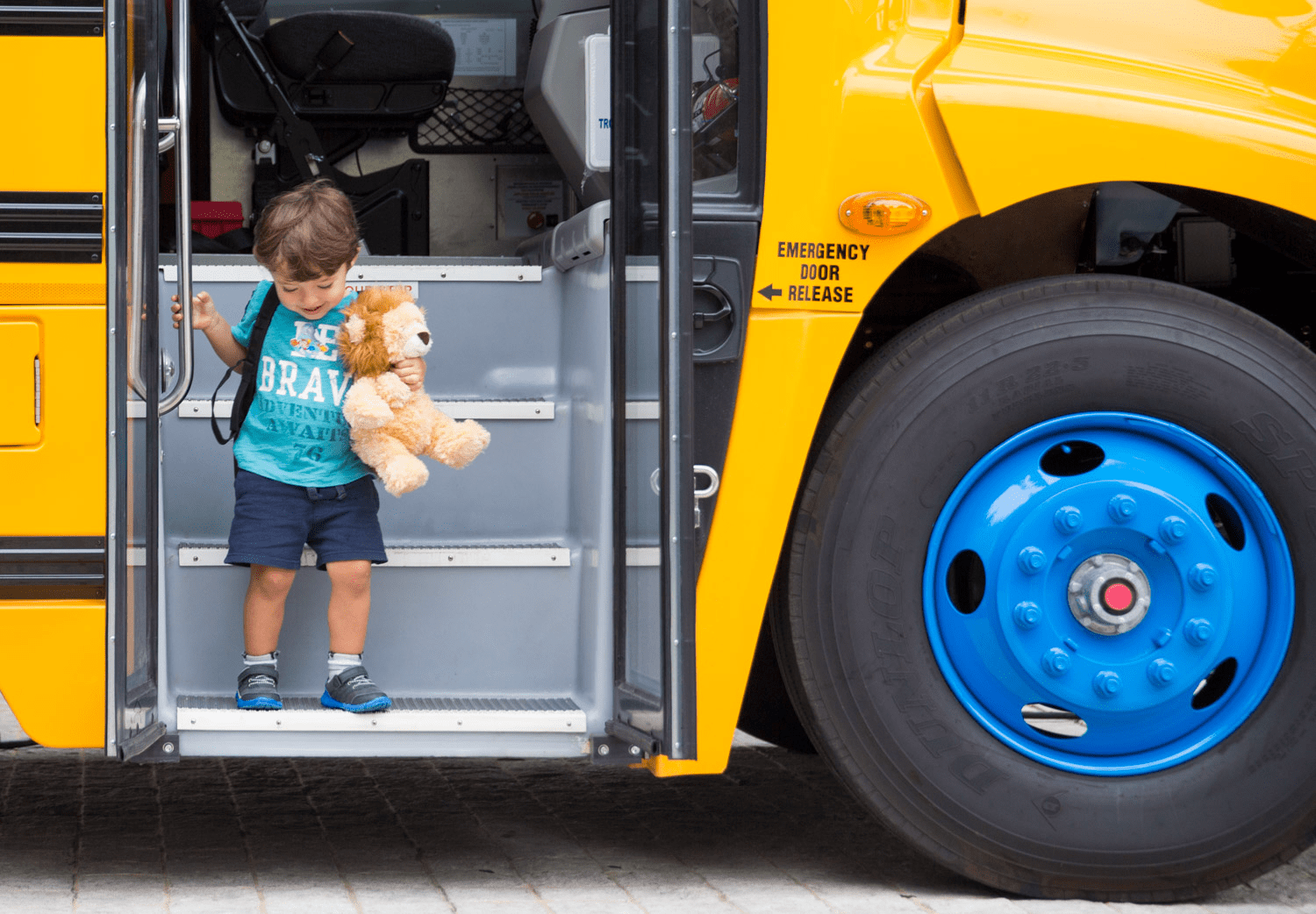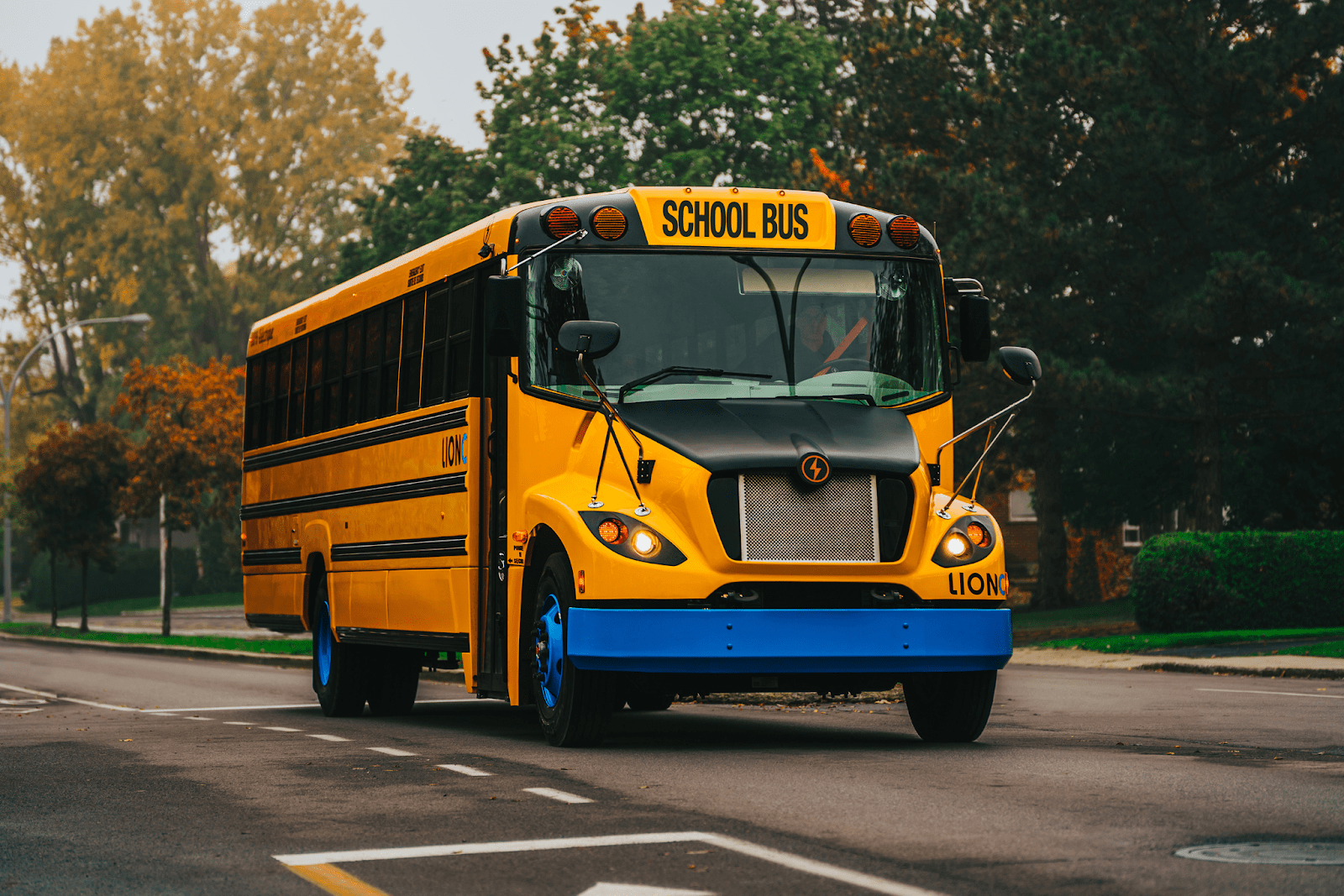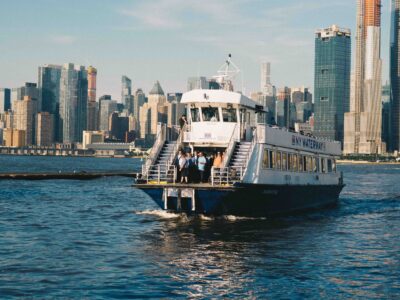Imagine a school bus. The odds are that you’re thinking of the same big yellow one that has been around for decades. The large rumbling vehicles jam-packed with screaming children have become a quintessential part of the schooling experience but a largely inefficient component. More than 90% of the nation’s 500,000 school buses run on diesel fuel, emitting the same amount of greenhouse gas (GHG) emissions as one million homes.
However, they aren’t just not so environmentally-friendly, but also often struggle to get children to school on time. In areas like the Oakland Unified School District in California, nearly one-third of the school buses arrived at school late due to long commutes and disorganized routes. To fix the American school system’s ailing transportation system, a California-based rideshare business, ZUM, decided to tackle the issue.
The idea for the company came when the founder and CEO, Ritu Narayan, experienced firsthand the difficulties of finding trustworthy school transportation for her children while balancing her career as an entrepreneur.
So she started the firm with her two brothers, Abishek and Vivek Garg, and by all accounts, the company has been wildly successful. It’s flirting with unicorn status — as of May 2022, valued around $937 million — for its innovative approach to school transportation.

Its solution is an app-based rideshare program designed to make transportation more flexible than the traditional staggered A/B schedules. Instead of sending out a fleet of mass-transport school buses, ZUM uses several different-sized vehicles depending on the route taken and how far away from school the children live.
Unlike traditional rideshare companies, ZUM owns its fleet so that a stranger won’t pick up the children. Each fleet vehicle is equipped with its comprehensive platform that connects to the app, giving real-time route updates, which help provide personalized information for families about their children’s commutes. Parents can access to let drivers know when their children will be absent, thus cutting down on needless stops.

ZUM’s technology doesn’t just improve the efficiency of school transportation; it’s also an upgrade for school districts environmentally. In contrast to traditional school vehicles that rely on diesel fuel, the firm has committed to be an entirely electrified fleet by 2025, using LionC electric school buses.
Each LionC model decreases GHG emissions by up to 23 tons per year and can save school districts up to 60% on maintenance costs and up to 80% on energy costs.
Additionally, ZUM is completely carbon neutral, offsetting all of its carbon emissions since its pledge in 2021.
Since launching in 2015, the company has become a crucial part of school transportation across the U.S. In the Oakland Unified School District in California, the company decreased commute times for the 70% of students who had commutes of more than an hour on traditional systems, to just 3% of students using ZUM’s system.
The bus service has become a key player in school districts across the West Coast, including the San Francisco Unified School District and Seattle Public Schools. It has also reached communities in Texas, like the Arlington Independent School District, and up into the Midwest with the Evanston Skokie School District 65 in Illinois.
The company’s innovation is revolutionizing school transportation in a more efficient way and is better suited to help adapt to the world’s climate demands. “Many times, you do things for market opportunity,” says Vivek Garg, ZUM’s chief operating officer. “But then there are times when the reason you exist becomes so important, and you can make such a big impact on society. This is one of those times.”





